This work is licensed under a Creative Commons License.
Copyright © 2004 by Nic Bernstein
When I was a young man, well – eleven or twelve years old, perhaps – a bicycle store opened around the corner from my house.
The storefront had already had an interesting history, at least from my child-eye-view. In my earliest memories it was a bakery. I would occasionally accompany my mother there for shopping, and the bakery ladies would slip me a great big pretzel-rod; enormous in my eyes, my stomach.
A Saturday may take us there, my siblings and I, to spend a bit of our pocket money on cookies or other treats, and always a pretzel-rod would be included. As you can guess, this store was the sort of place to make an impression on a young child, and the storefront earned a place in fond memory.
In the late sixties, while protests about war and racism and fair housing were wracking the city, the nearby university, and our own corner of the world, the bakery kind of slipped away one night. I no longer recall just when that happened. You would be excused for thinking, seeing how I have just described the place, that it’s closing might have had a more profound impact on my child mind, memory, time-line. It would seem, however, that a child’s thoughts are not always so firmly cemented.
The smells, the tastes, the kind bakery ladies with the immense pretzel-rods: these are memories which are seemingly unshakable. But the absence of that, its slipping over the event horizon of history, that I do not recall.
I’m sorry, I digress.
So, the bakery of my youngest years, it closed at some point, some time near the summer of love, and then there was a Hi-Fi store. This was an interesting place to a young boy like me, a kid interested in things mechanical and electrical could easily be intrigued and entertained for hours by the nifty new gizmos of a Hi-Fi store.
And the people! There were men working there who had long hair! Now I don’t want to leave the impression that I hadn’t seen men with long hair before, my family had hosted Students for McCarthy, for instance, and they had long hair. I grew up only a block from a college campus, and there were plenty of long-haired men there, but those guys weren’t workers, they were students, and at that point in my life I understood that there was some sort of separation, long hair meant student, short hair meant worker.
One of the guys working at the store, John, (he had short hair, by the way) used to play chess with a woman named Karen. Karen I knew from the neighborhood, she had been a nanny to the kids across the street from me when their mother was ill. So Karen let me come in to the store, and I would watch her play chess with John, and I would kibitz. John would ignore me. John was a student of military history, and this was a game of chess, and John would ignore me. Karen would listen to me, and sometimes would do what I has said I would do (for all I know she would have done it anyway, but an 8 year-old’s mind doesn’t think that way) and then she would win, and John would call me an urchin and tell me that he heard my mother calling me. John ended up being one of the most important men in my life – probably second only to my father in his influence on me – but neither of us knew that then. He only knew that I bugged him, and I only knew that for some reason John was hearing things.
This storefront was making it’s way through time in much the same way that I was, it was maturing and it seemed to change from one interest, say bakery, to another, stereos, at about the same pace that I did. It seemed only natural, then, when the Hi-Fi store closed and a bicycle store opened.
My mother had always liked to cycle, and she introduced us to cycling early in our lives. My best friend, David, also liked to cycle. Milwaukee, where I grew up, was a center for cycling, nationwide, and was home to both state and national clubs, had miles of bike paths, and avid riders.
Every year there was a bike ride, the Milwaukee 64, which made a large loop around the county, and when I was nine years old I got a new bike – a Raleigh – and I got to go on my first Milwaukee 64. I invited my friend David along, and together with my Mom we rode the entire ride! It took us nearly thirteen hours, but we did it! The whole affair, however was a little more involved than just that.
David and I had been playing over at the university. Growing up as close to it as we did, it was kind of a back yard to us. We would spend long hours playing in the buildings and around the campus there, and there was always something to keep us entertained. This one particular weekend, the last really warm weekend of a rapidly encroaching autumn, it was the escalators, great long escalators, up and down right next to each other, just waiting for us kids to play on them. One of our favorite things to do with an escalator was to go in the reverse direction; either down the up escalator or up the down escalator. When one walks at the right speed it is much like a treadmill, an inclined treadmill.
This was great novel fun to us, and we were doing just this, me going up a down escalator, when I tripped, falling forward, my knee hitting the leading edge of a descending step, the step slicing into my knee and shredding a bit of it. I collapsed in a bunch into the step and howled as I rode the step to the bottom, while David ran to my aid, helping me get clear of the escalator and to the nearest bathroom to tend to the wound.
Our nascent scout training in first-aid was stretched to the limit by the meager resources of paper towels and water with which we tried to staunch the bleeding. We knew that more was needed, but that would mean going to one of our homes. Mine was closer, so we stashed our bikes (unlocked!) in a hiding place we had found under a stairway, and David helped me back to my house a few blocks away.
We had to slip in through the back door. I was a trouble prone child, going to the hospital for something or another every odd year of my young life, and I knew that my parents would not take well to the knowledge that I had hurt myself playing on an escalator (forbidden) on campus (forbidden). I found some big gauze bandages. I applied one, but it wouldn’t stick, and was plain as day to the casual observer with me in shorts, so we snuck up to my room and I pulled on the tightest pair of jeans I had, thus hiding the offense while securing the bandage at the same time.
Now properly repaired, we went back to get our bikes. I could hardly be expected to ride mine (and in the tight pants couldn’t), so we walked back through the university with them. As we were walking through the Fine Arts building, past the theater, we heard noises. Not voices, not speaking voices at least, but strange sounds. We had to investigate!
What we found was wonderful to an eight year old’s mind – there was a theater workshop in progress, the students were experimenting, clamoring all over some scaffolding on the stage, acting like apes of some sort. They beckoned us in, and drew us up on stage with them. They soon had us enthroned as royalty of a sorts, and groveled to us. I had a kind of robe and scepter and was thoroughly enjoying myself, when the workshop came to a close. The students stopped being apes and went back to being students (a transition which, to my young eyes, was remarkable in its suddenness and totality) and David and I were no longer royalty.
Thus humbled, we went on our way back to our homes.
Later that night I had to tell my parents that I had injured myself. Our improvised first aid was giving out, and my wound was starting to get scary. I made up a story about falling while riding my bike (still a kid’s bike with 20″ wheels) and my mother took me off to the hospital to get the wound tended to. This is the first time that I heard my mother joke that the hospital should name a wing after me, and I can still remember the nurse agreeing.
I had had stitches before, so I knew what await me as I lay in the curtained off room. I imagined the stitches, the pain, and I felt the humility of having hurt myself in such a stupid way. It was so stupid, I realized, that my deceit, my lying, had as much to do with my pride as with my fear of punishment. I laid there and cried my eyes out while my mother talked to doctors or nurses or filled out paperwork, or did whatever it was that was happening out in that part of the world that I couldn’t see. All I could see was my self in this curtained off room, with this horrific looking hole in my knee, and I had the biggest cry of my young life.
Or so it seemed, at least.
After some time a doctor came in and said he was going to give me an injection to kill the pain, and that then he would clean me up and put me back together again. I think that this last part intrigued me, I kind of felt like the scarecrow in Wizard of Oz, and as the benzocaine took effect I actually sat up and watched as the doctor cleaned the wound, chopping out bits of flesh that had been ground up by the escalator, and then stitching it all closed again. The whole thing was pretty cool, and I felt foolish for having cried so.
On the way home, as I lay in the back of the station wagon, my mother commented that she couldn’t understand how falling of a bike could do such damage. My humility flushed back, and I felt the fool again.
Anyway, with my birthday approaching, we went, the next night, to go get my present – a new bicycle – so that I could ride with my mother in the Milwaukee 64. The Raleigh was everything that a nine year old could want, big wheels, caliper brake, and Raleigh Racing Green! It would be ridden in the street, and it would need to be licensed! I was no longer a boy, I was a man! At least that’s how I saw it.
So we rode that next weekend, and after 64 miles and thirteen hours we finished. I managed to pop every stitch in my knee, but that was nothing next to the fascination with bicycles which now gripped me. David was gripped too, and soon had his own Raleigh, also green, and we were on our way to a new juvenile passion.
By the time the bike shop opened around the corner from my house David and I were avid cyclists. Just the perfect thing to make us the perfect pests for the new store, and we wasted no time in making ourselves invaluable to them (at least that’s how we saw it). We cleaned chains and trued wheels, we watched the store while the brothers who owned it went to grab a bite.
Over the next couple of years we each built a bike or two, real bikes, the kind that real racers rode, and David even raced on his. I was soon surpassed by my friend that I had introduced not so long ago to the sport, and he became quite a good cyclist.
It was during this time that my father died. He was young, then, only 54, and I was only thirteen. I had just finished my first year in high school, had a job working at yet another stereo store around the corner (this one owned by John) and still dabbled with bicycles.
By the next summer I had augmented my afternoon job at the stereo store with work as a dishwasher at an Italian restaurant downstairs from the stereo store, and was preparing to enter college a year later. Tinkering with stereos was pulling me away from cycling, as were computers and other technical interests, as was a growing appreciation for socializing, as was a growing appreciation for girls.
Between high school, the park outside high school (its a toss up where I spent more time), the waitresses at the restaurant, and the girls who lived in the apartment across the hall from the stereo store, I was surrounded by girls and I was really growing interested in that!
But when you add it up: bikes, Hi-Fi, computers, dope, it doesn’t really draw the chicks. At least not in 1977 it didn’t. I was in some serious need of coolness if I was to get anywhere. Help was just around the corner…
My older brother had put off college and got a real job (at the post office, I think, or was it the florist?) and moved into an apartment with some friends. One of his friends had made some sort of a deal or a trade or collected on a debt, I am not sure of the details, but in any event, deals were made – let’s leave it at that, and this friend ended up with this very strange thing, a PPV, a People Powered Vehicle, and I was to make it work.
The thing looked like a cross between a golf cart and a paddle boat.  It had a steering wheel, two bucket seats, three wheels, drum brakes, a stick shift and a bow like a boat. The chain drive transmission was screwed-up somehow, and the whole thing needed a really good cleaning. The deal I was offered was if I fixed the PPV I would get to use it for the summer. I jumped at the chance.
It had a steering wheel, two bucket seats, three wheels, drum brakes, a stick shift and a bow like a boat. The chain drive transmission was screwed-up somehow, and the whole thing needed a really good cleaning. The deal I was offered was if I fixed the PPV I would get to use it for the summer. I jumped at the chance.
The driveway behind the house became my workshop. I soon had the beast over on its back, the entire drive-train stripped off, and various parts made the trip around the corner to the bike shop, where I still had privileges, to be cleaned, lubed, trued, painted … whatever was needed.
It took the better part of a month to get the basic work done, and then a long effort to get the transmission working properly. Between the end of school, the stereo store, the restaurant and getting stoned, I had my hands full.
By the time I got the thing working there was hardly anyone around who hadn’t either seen it or heard about it. The couple of guys I knew at the restaurant, friends from school, thought it was the coolest thing, and told the rest of the staff about it. This, I figured, was the thing that could make me cool. I screwed up my courage and asked Candie (a waitress whose name belied her seriousness and studiousness) if she would like to join me for the inaugural ride. She agreed!
I “picked her up” with the PPV at the dorm(!) and she was amazed by the thing. We rode through the university, down to the lake, along the lake front, and back through the tony part of town back to the school. It was everything my young heart could have hoped for; a warm day, a light breeze, this cool vehicle, people honking and waving as they passed, Candie smiling and whooping as people waved! It would have been perfect if it wasn’t all so damn teenage GEEKY!
When I dropped Candie off she thanked me for the ride, and said she would “see me around,” and as I watched her older, college student butt walk back into the dorms, as I sat in my geek-dream-mobile, I realized that I had done nothing to pierce through the aura of nerdy younger brother, friend, whatever which seemed to color all of my relationships with women.
And then my time with the PPV was up.
Before that, my brother came over one day to take it for a spin. A newspaper photographer spotted him riding it, with his wavy hair and cool aviator-frame sun glasses. That picture ended up in the paper the next day, and he didn’t look nerdy at all, proving once and for all that it was me and not the equipment.
After that summer the PPV was stolen from behind my brother’s apartment house. The next year I discovered theater in my senior year of high school, further bolstering my geek portfolio by joining stage crew. This led to my college career of technical theater, and my work career of computers, science and the Internet.
I never really left that awkward high school geek behind, or my odd collection of talents, interests and skills. But the PPV will always be with me for the brief weeks of hope that it gave me of breaking through it all and being cool, just a little bit cool, for one day, for one ride, with the coolest waitress in the place.


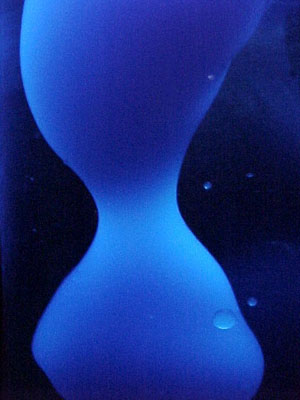
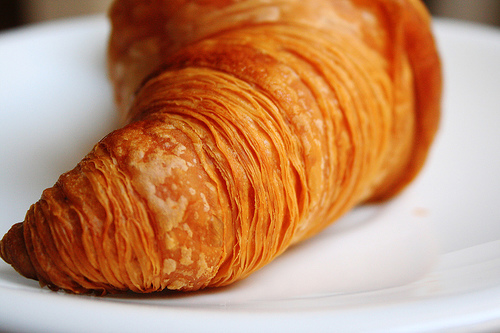
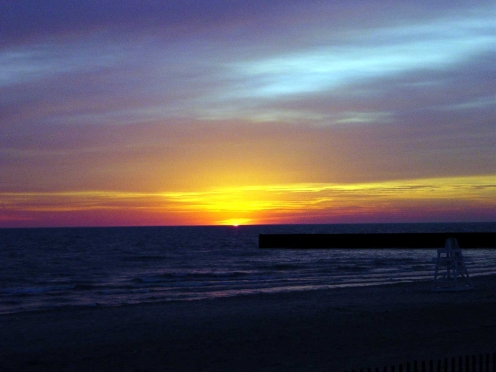
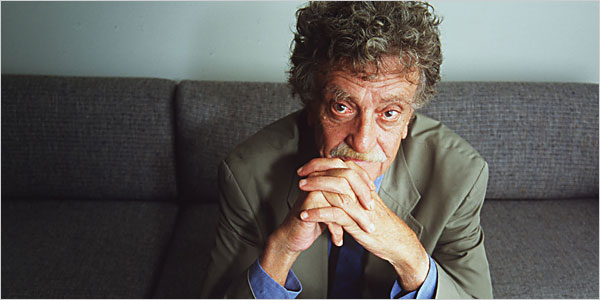
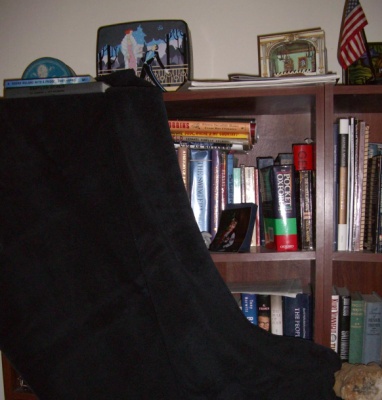
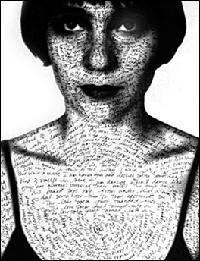

 correspondence. It is preserved in the page upon page, pad upon pad, carbon upon carbon. She was raised back in the day when people did correspond, in written form both frequent and copious. She saved copies of this correspondence as carbon copies when carbon paper was at hand, and as hand written copies when it was not. It is these copies of correspondence which preserve her memory, in part. And it is these correspondence, too, that weight me down, spiritually and literally. The boxes and bags of this written evidence of a life once lived fill closets.
correspondence. It is preserved in the page upon page, pad upon pad, carbon upon carbon. She was raised back in the day when people did correspond, in written form both frequent and copious. She saved copies of this correspondence as carbon copies when carbon paper was at hand, and as hand written copies when it was not. It is these copies of correspondence which preserve her memory, in part. And it is these correspondence, too, that weight me down, spiritually and literally. The boxes and bags of this written evidence of a life once lived fill closets.